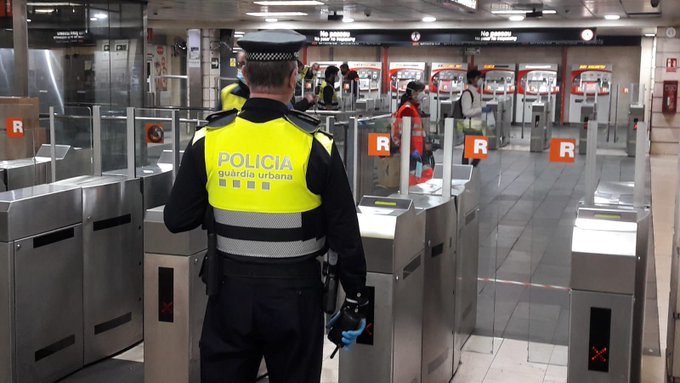Latest: Coronavirus in Spain figures (21 May)
Please support Spain in English with a donation.
Report below updated in Spain at 19h on Monday 4 May.
CORONAVIRUS in SPAIN – today’s figures
The latest official figures* released by Spain’s Health Ministry in Madrid at 11h on Monday 4 May confirm that 25,428 people have now died from the pandemic in Spain, up by 164 on yesterday. It is the same daily increase as yesterday – the lowest since 18 March.
Sunday had also seen an increase of 164 Coronavirus-related deaths over Saturday. Saturday had been an increase of 276 over Friday. Friday had been 281.
The current peak of recorded deaths related to Coronavirus in a 24-hour period in Spain was on 2 April, when 950 deaths were registered.
The Spanish Health Ministry now releases figures for the total number of people who have only tested positive for Coronavirus through a PCR (polymerase chain reaction) test. That figure for Monday 4 May is 218,011 – an increase of 356 over yesterday.
The current peak of recorded infections for a 24-hour period in Spain was on 31 March, when 9,222 new cases were registered (including from PCR and other testing).
121,343 people have now made a full recovery, an increase of 2,441
With regards the official figures released by the central Health Ministry for each region of Spain, there have been discrepancies in the data released independently by some of those regions, particularly for Madrid and Catalonia. Please refer to *Health Ministry data and regional discrepancies below.
Of the official figures released by the ministry today – and based only on the total 218,011 confirmed cases through PCR testing – there are now 62,395 cases in the Madrid region and where 8,376 have died (from the total 25,428 across the country). There are now 50,366 cases in Catalonia and where 5,220 have died.
Seven regions have registered just one (Asturias, Cantabria, Madrid) or no new infections (Balearic Islands, Ceuta, Valencia, Murcia) for Monday 4 May.
There are now 12,952 known cases in the Basque Country (1,341 deaths), 12,194 in Andalusia (1,263), 16,050 in Castilla La Mancha (2,590) and 10,436 in the Valencia region (1,269).
Figures for those infected with Coronavirus in other regions are now as follows: Aragón 5,188 (762 deaths), Asturias 2,306 (284 deaths), Balearic Islands 1,908 (197), Canary Islands 2,225 (141), Cantabria 2,206 (197), Castilla y León 17,334 (1,818), Ceuta 101 (4), Extremadura 2,849 (460), Galicia 9,011 (569), Melilla 119 (2), Murcia 1,492 (134), Navarra 4,918 (466) and La Rioja 3,961 (335).
A full breakdown in Spanish of the data per region, together with age group statistics can be found by clicking here. Please also see Health Ministry data and discrepancies below.
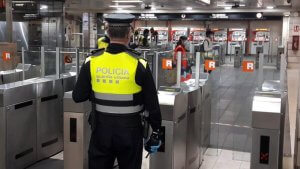
Sign up for our FREE Weekly Newsletter
CORONAVIRUS in SPAIN – latest updates
Today, Monday 4 May, Spain officially commenced Phase Zero of the government’s ‘four phase’ de-escalation plans to lift the current Coronavirus lockdown restrictions.
From Monday it is now compulsory to wear face masks on all public transport in Spain.
Also from Monday restaurants and cafés in Spain are being allowed to reopen only for people to collect food, or for a takeaway delivery service.
Businesses such as bookshops, hardware shops, hairdressers and ‘workshops’ are also reopening, but for visits by appointments only. Only one customer can be served by one employee at a time. Some regions are permitting stores of up to 400 metres in size to reopen – but for customers with an appointment only.
Preference hours at these establishments are being given to people aged over 65 in Spain. Restrictions for professional sports have also been lifted from Monday. Individual training sessions are now allowed, without time limits. Players in professional leagues are also now allowed to train individually at their clubs.
Since Saturday 2 May, restrictions in Spain have also been relaxed to allow adults to take daily walks and exercise. Restrictions were also previously relaxed from Sunday 26 April for children to be able take daily accompanied walks for an hour.
We have published all the key rules and guidance for walks and exercise (for both adults and children) in a separate report, together with all details of the Four Phases of the Spanish government’s plans for the lifting of lockdown measures. It is being regularly updated when new measures are officially announced. The report can be found here: Lifting of lockdown in Spain – full details of all phases
Congress to debate ‘state of alarm’ extension
Spain’s socialist (PSOE) Prime Minister Pedro Sánchez is to officially seek a further extension to the current ‘state of alarm’ lockdown in the country during a debate in the Spanish Congress this Wednesday 6 May.
Sánchez announced on Saturday that he will seek an extension to the lockdown for a further 15 days until 25 May.
Pablo Casado, the leader of Spain’s main opposition party, the right-wing People’s Party (PP), stated on Monday morning that as things currently stand, his party will not support the extension.
Spain originally commenced its lockdown for two weeks from 14 March, with measures that confined everyone to their homes apart from leaving to purchase food or medication, or to go to their place of work only if they could not perform their duties from home. After one week, these initial measures were then extended until 12 April, then for a second time until 26 April – and then until 9 May.
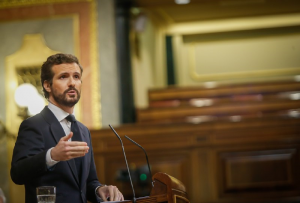
ALSO READ: Lifting of lockdown in Spain – full details of all phases
Sign up for the FREE Weekly Newsletter
Please support Spain in English
*Health Ministry data
Since 24 April, the Spanish Health Ministry changed its criteria for presenting its Coronavirus statistics each day, to only include the number of infections of those tested via PCR (polymerase chain reaction).
Previously, the ministry had also stipulated to Spain’s regional health authorities how the overall data should be collated, as some regions had been using different methods to collate their own figures.
In Catalonia, for example, the regional health department had only previously been counting figures for those who had died from Coronavirus in hospitals. This was then changed to include figures for those who had also died in nursing homes, social health centres or elderly residences, as well as at home.
Following discrepancies in the way that data has been collated, the Spanish government published an order in its Boletín Oficial del Estado (BOE) to clarify the criteria that must be used.
All regions must now report deaths and intensive care unit (ICU) admissions in the same way. A victim can only be counted in the death tally if they have tested positive for Covid-19 via a PCR (polymerase chain reaction testing) or rapid test.
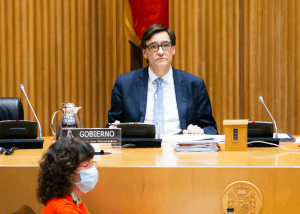
The Health Ministry has also requested that each region send in the total number of infections divided into symptomatic and asymptomatic cases. In addition, they also require the number of PCR tests carried out from each region, the total number of people that have required hospital treatment, including intensive care, as well as the number of patients who have been discharged.
Salvador Illa, the Spanish Health Minister, said that, ‘Spain is following a very strict definition of cases in line with international authorities, including the World Health Organization (WHO) and the European Centre for Disease Prevention and Control (ECDC). Anyone who tests positive for Covid-19 and then dies is considered a Coronavirus fatality’.
Sign up for our FREE Weekly Newsletter
Please click to support Spain in English
Below are the numbers to call for each region of Spain for information and assistance in the event of possible cases of Coronavirus.
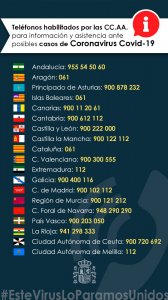
Up-to-date WHO advice and facts (in English) about the Coronavirus epidemic can be found here: www.who.int/emergencies/diseases/novel-coronavirus-2019/technical-guidance.
Our previous reports on Coronavirus in Spain:
ALSO READ: Opinion: It’s common sense … isn’t it?
ALSO READ: Coronavirus in Spain full update (4 May)
ALSO READ: Coronavirus in Spain full update (2 May)
ALSO READ: Coronavirus in Spain full update (1 May)
ALSO READ: Children enjoy first ‘hour of freedom’ in 43 days
ALSO READ: Opinion: why bullfights should stay cancelled after Covid-19
ALSO READ: Pedro Sánchez seeks cross-party ‘Moncloa Pact’ for recovery programme
ALSO READ: Co-Vida: an inspiring community action project
ALSO READ: One day more, one day less
ALSO READ: ‘Up on the Roof’ – surviving lockdown from above
ALSO READ: Open Arms refugee NGO helping to combat Coronavirus
ALSO READ: When can La Liga restart?
ALSO READ: Coronavirus in Spain: unemployment figures worst on record
ALSO READ: FC Barcelona players agree to 70% pay cut, and will ensure staff receive 100%
ALSO READ: Animal rights NGO starts petition against possible state aid for cancelled bullfights
ALSO READ: Spain publishes list of hotels that will remain open
ALSO READ: The new restrictions at Spain’s airports, ports and land borders
ALSO READ: Walking a goat or a Vietnamese pig is not allowed
ALSO READ: Coronavirus in Spain – full advice for British travellers seeking to return to the UK
ALSO READ: ‘This virus we will stop together’ – video
ALSO READ: Despite lockdown, Spaniards applaud health workers from balconies every evening
Sign up for the FREE Weekly Newsletter from Spain in English

